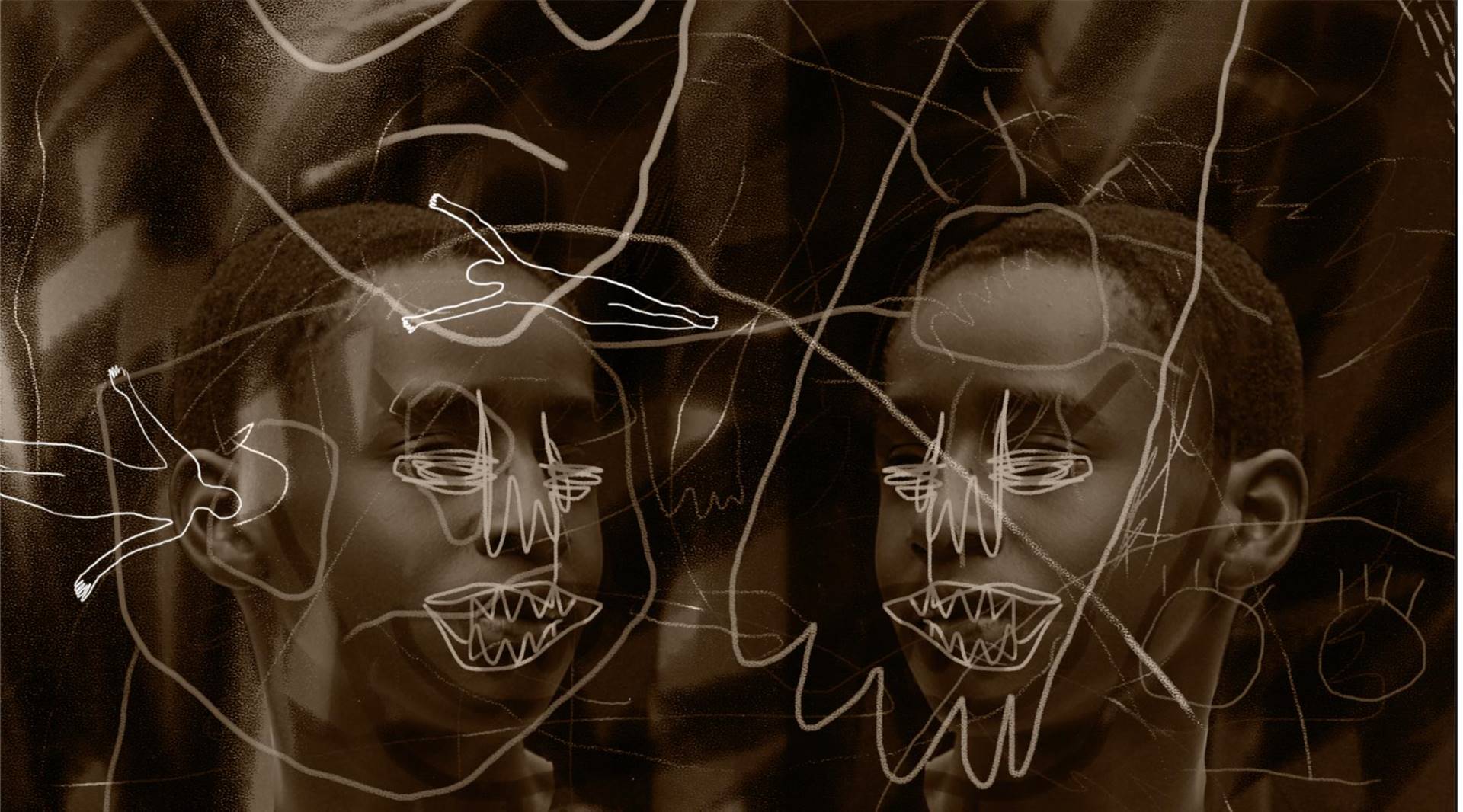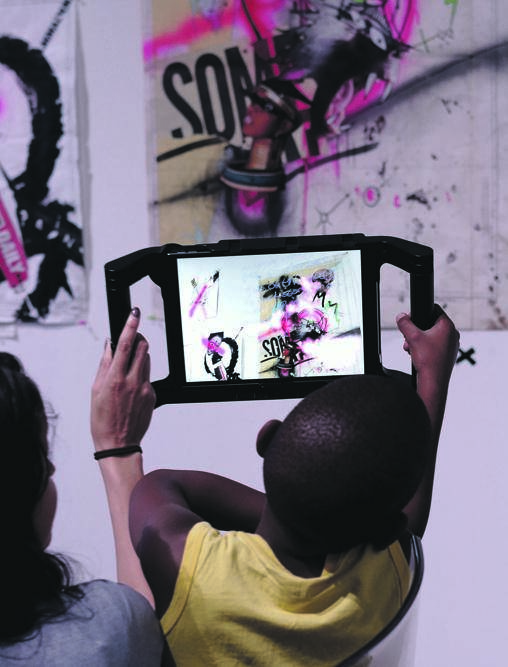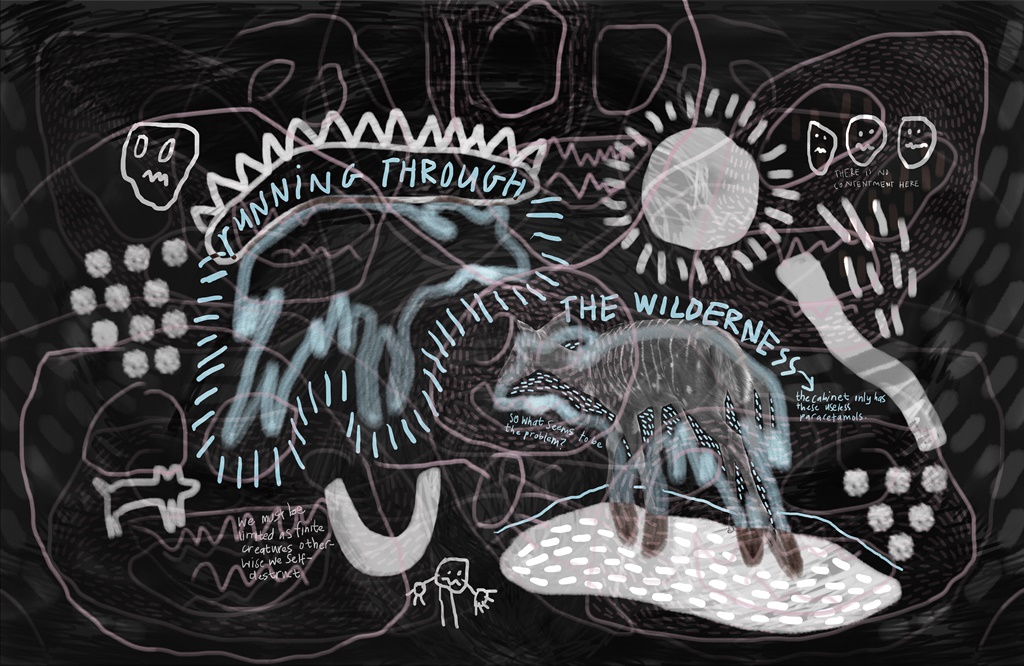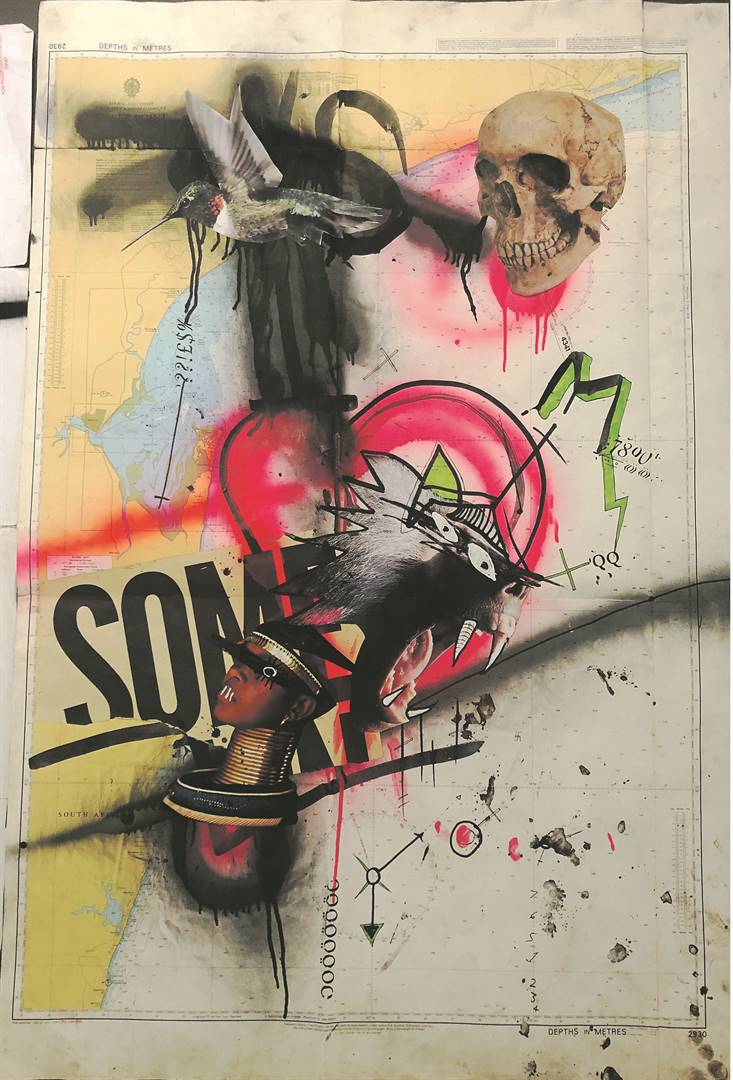
Occupying the Fatuous State of Severity: A Mixed Reality Exhibition opened last month, inviting people to enter a technological portal that takes on the stigma of mental illness in black communities. Nickita Maesela explores the show’s artistic response to the twisted tales shared in Phumlani Pikoli's book.
The enduring stigma surrounding mental health in the country, particularly in black communities, sits heavily among our families, in our relationships, workplaces and even churches, forcing many who live with mental illness to remain silent.
The shame is detrimental, making the need for black people to initiate conversation around mental illness a matter of urgency.
Occupying the Fatuous State of Severity: A Mixed Reality Exhibition, an interpretation of 31-year-old Phumlani Pikoli’s book, The Fatuous State of Severity, made its debut in Johannesburg last week. It takes viewers through a sonic and visual expedition of mental health.
Pikoli’s first self-published book gave the world a collection of 21 short stories written during his time in a psychiatric clinic.
The recreated visions of that collection are reflective of subdued human conditions and invite viewers to interact with visual interpretations of his twisted tales that touch on issues of race, politics and mental illness.
Walking into the two rooms in which the exhibition takes place, I felt a deep sense of calmness amid apparent chaos that was foregrounded by echoing visuals on the walls. I’d soon experience the full extent of the work through virtual and augmented reality. I was prepared to enter Pikoli’s personal Netflix Black Mirror episode.
The exhibition is a result of a collaboration between young artists Bale Legoabe, Skumbuzo Salman and Felix Laband.
A scene ridden with palpable melancholy, insidious lines, clinical colours and striking shapes is what stood out devotedly in Legoabe’s work. The artist’s digital art style forms images of a rebellion, used to augment displayed art in the real world.
It is seen by the viewer holding up a hand-held screen pointed at particular points in the room, each marked by a black X. The work ensures that resonance of discomfort is present.
This work is reflective of the unheard of, invoking the uncomfortable conversations about mental health that we find ourselves having in our heads because of fears of stigma.
The exhibition is a depiction of aspects of the human condition through technology and visual art.
The surrealist expeditions through virtual reality (VR) and the VR headset over your eyes leave you blind to the current world, instead expanding your senses with experiences within.
The first headset I put on, paired with headphones, took me on a journey through monologues performed by people wearing all black. I heard speaking before seeing anything. Then I was guided by a glimmer of light directing me to turn my head and body either left or right, bringing the owners of the voices into sight.
It felt like I was watching a show at The Market theatre in Johannesburg, but in reality I was seated on a barstool in Rosebank’s TMRW Gallery. The experience is an entry into a portal that is the visual re-imagining of Pikoli’s book.
VR is an artificial environment that is created with software and presented in such a way that the user suspends belief and accepts the new reality as a real environment.
The show also uses augmented reality, which takes our current reality and adds something to it.
Like surrealist imagery, the artwork is perplexing, elusive and jolts the viewer out of their comfortable assumptions.
Displacement and feelings of confusion permeate the augmented reality version of the work. The whole exhibition acts as a mirror showing us the reflection of a nation in disarray, in dire need of a healing that can only be facilitated by talking about mental illness.
Another art piece features a VR portal filled with words of affirmation floating around in a dream-like setting with pastel colours and bold words moving around in what can be perceived as the clouds, or heaven, as often depicted in cartoons and romcoms.
This part takes the audience through a breathing regulation exercise that I found to be grounding. It was a complete escape from the immediate surroundings which had strangers and familiar faces walking around, talking loudly and with electronic music reverberating throughout the gallery.
The piece is a reminder that we often are never given the time to take a moment to breathe and to escape in a healthy way that contributes to attempts at healing.
The exhibition essentially brings to life the black community’s categorisation of mental illness as a figment of the imagination. Pikoli, Legoabe, Salman and Laband have taken the first step towards dispelling taboos around mental health.
The more we talk about mental illness, the more comfortable people will be in seeking help and understanding that they are not alone.
As much as the work responds to Pikoli’s exploration of mental illness and the time he was institutionalised, it also indirectly comments on a generation that is trying to heal from society’s aches and pains. The work speaks to a generation experiencing a psychological response to the severe inequality and trauma that persists today.
 | ||||||||||||||||||||||||||
Get in touchCity Press | ||||||||||||||||||||||||||
| ||||||||||||||||||||||||||
| Rise above the clutter | Choose your news | City Press in your inbox | ||||||||||||||||||||||||||
| City Press is an agenda-setting South African news brand that publishes across platforms. Its flagship print edition is distributed on a Sunday. |




 Publications
Publications
 Partners
Partners











